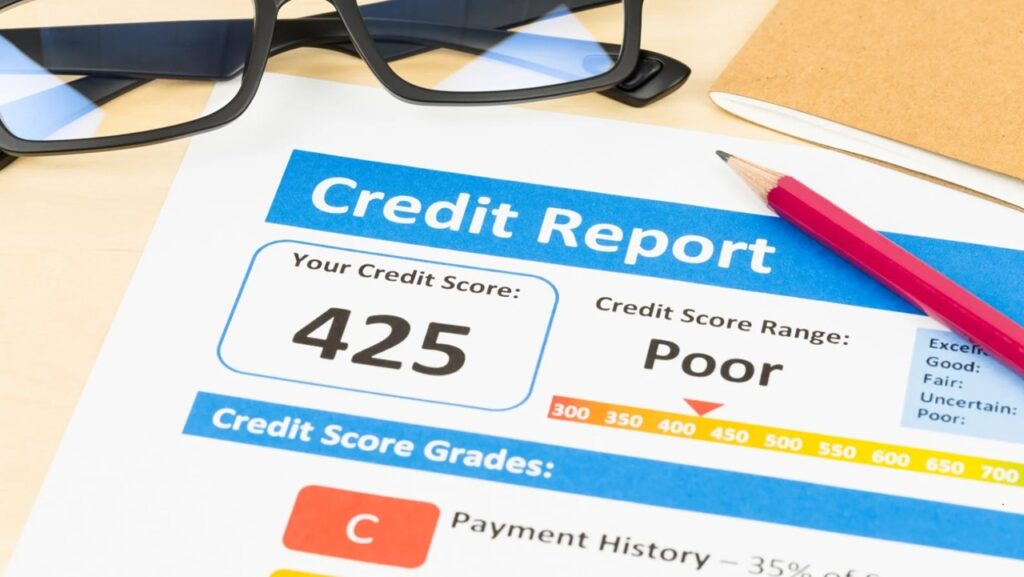Yes, getting a guarantor or a no-guarantor loan for a low credit score requires detailed analysis. It is because both these loans operate differently. No guarantor loans grant full control and privacy on the loan agreement. However, a guarantor-based loan requires you to open up about your finances with the guarantor. Here, the control you share is limited.
A guarantor is someone who helps the borrower qualify for the loan. It is when the primary borrower lacks the basic credit and the income requirement to get a loan.
However, choosing the right between a guarantor and a no-guarantor loan is challenging. The choice generally depends on the purpose, credit rating and the risk one can take. The blog lists such aspects in detail. It will help you understand which loan might be ideal for you. One must choose the right one, especially when you share a bad credit history. Let’s begin!
Guarantor Vs No Guarantor loan: Meaning
Guarantor loans are a financial facility that requires a borrower to provide security in the form of a guarantor. The person guarantees to pay the loan payments if the borrower fails to. He can be anyone you share a close bond with.
For example, you can involve your mother, father, brother or even wife in the agreement. However, the person must share a consistent income, credit score and well-managed financial profile.
No guarantor loans are a financial facility that a person can tap when they lack a guarantor or someone to guarantee the payments. It helps you manage and regulate the loan payments individually.
It eliminates any requirement to discuss personal finances if you don’t want to. These loans share competitive interest rates. Therefore, taking one with bad credit requires you to hold fair credit and a consistent income.
Guarantor Vs No Guarantor loan: Purpose
A guarantor-based loan is generally ideal if you need urgent cash but lack the credit score or income required to qualify for the loan. Here, the loan provider may demand extra security, like a guarantor. He analyses the person’s finances and credit score against yours.
A guarantor with a high credit score and consistent income may qualify. It assures the loan provider of timely payments. Thus, you may consider guarantor loans online in the following situations:
- You have someone you can rely on for payments
- You need urgent cash, but don’t meet the conditions
- You share a good relationship with the person operating as a guarantor
- You are confident about his commitment to a long-term agreement
Alternatively, no guarantor loans are ideal if you have a consistent income and a fair credit rating. It is ideal for students, the self-employed and the unemployed who struggle to get a guarantor. You can use it to fund any of your small needs without worries. Here are other aspects when a no-guarantor loan may be ideal for you:
- You have a consistent income
- You have a fair credit score
- You don’t have heavy debt
- You want to build a credit score
- You can repay the loan timely
Guarantor Vs No Guarantor loan: Interest costs
Taking up a guarantor-based loan helps you save on the interest costs. It is because the loan provider has the security in the form of a guarantor. If you, as a primary borrower, cannot pay, he may claim the money from the guarantor. The guarantor is legally liable to pay the dues.
Moreover, clarify the terms to the guarantor. It is because it may be difficult to back out later. The loan provider charges regular interest on a no-guarantor loan. Thus, taking up the loan for a long time means paying more interest. It increases the risk of defaulting if you miss a payment.
Alternatively, the interest costs remain competitive on a no-guarantor loan. It is slightly higher than that of a guarantor loan. It is because you get the loan without providing additional security, the same day. It eliminates the hassle of convincing the guarantor to help with the loan.
Guarantor Vs. No Guarantor loans: Impact on credit scores
It is important to learn about the loan’s impact on your credit score. It is because getting one with a poor credit history is indeed sensitive. One wrong initiative may affect your credit score significantly. Therefore, understand your guarantor loan clearly.

Here, if you default or cannot pay the loan timely, your and the guarantor’s credit scores fall. It may impact his (your guarantor’s) finances and the decisions that he may be about to take. Therefore, choose the loan only if you can coordinate well on payments with your guarantor. Moreover, if the guarantor’s finances fall and he may not help with payments, your credit score may fall. It is because if you and the guarantor cannot pay, the loan enters default.
Alternatively, paying the dues timely on a no-guarantor loan improves your credit rating. It fixes previous financial mistakes. Here, you are solely responsible for the payments. Therefore, analyse your finances and set a budget.
Check whether you can set direct debits. It will help you repay the dues without missing. Moreover, most direct lenders provide a little relief on interest or other costs to borrowers paying via direct debit. It is ideal if you save a particular amount every month. You can dedicate a specific one to the loan payments without affecting the rest savings.
A No guarantor loan is better if you need more flexibility on payments. For this, you must have a regular income that’s higher than the amount requested. Alternatively, the guarantor’s good credit history and mutual efforts to pay without missing payments help your credit score.
Guarantor Vs. No Guarantor loans: Your income type
Yes, choosing between the guarantor and the non-guarantor-based loans largely depends on your income and the amount you want. For example, getting a guarantor-based loan is ideal if you have a part-time income or a low income that does not meet the loan provider’s criteria. The other person’s income may help you qualify for better rates. It is if seeking direct lenders in the UK for a bad credit loan. You may fetch a better one than a part-time income. So, if you want nearly £10000 for your needs with a low income, a guarantor-based loan may help.
Alternatively, individuals with a consistent income may consider a no-guarantor-based loan. It is because you may get it with better interest rates and terms. Apart from that, if your financial standing is good with no major debt, you may qualify. A strong income demonstrates the ability of the borrower to pay back the loan timely manner. Thus, you may qualify.
Guarantor Vs. No Guarantor loans: fears of losing assets
Taking up a guarantor-based loan eliminates the fear of losing your pricey possession. It is because the guarantor helps you repay the dues if you cannot. Therefore, there cannot be two securities on the loan. You can either go for a guarantor or a secured loan for your needs. The person operating as a guarantor provides the strength of the credit and income. It eliminates the need for you to pledge an asset.
Alternatively, if you want to qualify for a no-guarantor loan for bad credit and low income, you may need to provide an asset. It could be your car, motorbike, etc., that matches the loan amount you need. It may help you get a larger amount with a low credit scores. However, not repaying the loan may lead to asset seizure. Therefore, choose one carefully according to your needs and credit score.
Bottom line
Choosing between the guarantor and the no-guarantor loans becomes easy when you know the function. The blog lists the clear difference between no guarantor and guarantor loans for bad credit. You can pick one according to your purpose. A guarantor-based loan is ideal if you don’t meet the lender’s criteria. Alternatively, if you can repay the dues on regular instalment periods, you may get a no-guarantor loan.

Sarah Jones is a seasoned financial writer with over a decade of experience covering personal finance loans, and dedicated to provide the best lending solutions to the clients. Known for translating complex financial topics into accessible insights, Sarah contributes to leading loan providers like Arbitrageloans and contributes to the company’s growth via professional writing and loan guidance. She holds a degree in economics and is passionate about helping aspirants with tools to make informed loan decisions. She also loves to explore the world and its natural beauty. Sarah believes financial literacy is the base of legitimate lending and borrowing. She strives to make it understandable for all.






